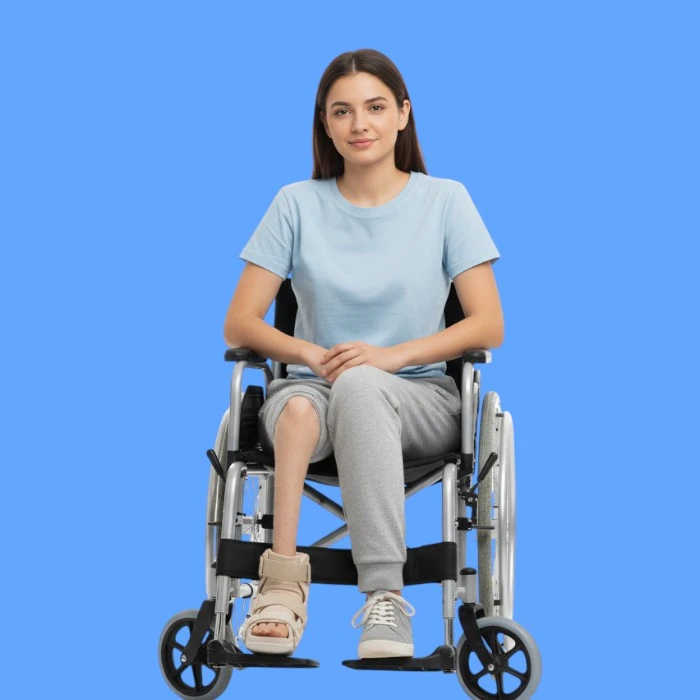what is polio disease?
Polio is a contagious viral disease that affects the nervous system and may lead in some cases to permanent paralysis in the limbs, especially the legs.
The virus is usually transmitted orally through contaminated food or water. It mainly targets children but can also affect adults in rare cases.
what are the causes of polio infection?
There are several common causes of polio infection, including:
- Consuming contaminated food or water with the poliovirus.
- Not receiving basic vaccinations against polio.
- Weak immunity in children or adults.
- Living in areas with poor healthcare services.
- Contact with a person infected with the virus.
- Traveling to regions where the disease is prevalent.
- Not washing hands properly after using the toilet.
- Using contaminated personal items.
what are the common symptoms of polio?

There are several common symptoms that a patient may experience, including:
- Sudden high fever.
- Persistent or recurring headache.
- Muscle pain, especially in the legs or back.
- Weakness or floppiness in the limbs.
- Difficulty in movement or walking.
- Stiffness in the neck or back.
- Breathing difficulties in severe cases.
- Loss of control over the limbs.
when should you see a doctor?
It is advised to consult a doctor immediately if any of the following conditions appear:
- Sudden weakness in the legs or arms.
- Fever lasting more than two days without a clear cause.
- Stiffness in the neck or pain in the back.
- Difficulty in breathing or swallowing.
- Inability to walk or stand.
- Unexplained neurological symptoms.
- Contact with a person infected with polio.
- Child not receiving basic vaccinations.
what are the treatment methods for polio?
There are several ways to treat the disease, including:
- Complete bed rest to reduce pressure on the nerves.
- Physical therapy to improve muscle movement.
- Using support devices for affected limbs.
- Taking medications to relieve pain and fever.
- Regular monitoring of neurological status.
- Providing balanced nutrition to support immunity.
- Psychological support for the patient and family.
- Surgical intervention in advanced cases.
can polio be cured?
In some cases, the patient can recover partially or completely, especially if the disease is detected early and treatment begins immediately.
However, in other cases, the disease may leave permanent effects such as muscle weakness or partial paralysis, depending on the extent of nervous system damage.
what are the prevention tips for polio?
There are several tips to prevent the disease, including:
- Adhering to the basic vaccination schedule for children.
- Washing hands well with soap and water before eating and after using the toilet.
- Avoiding food or water from unreliable sources.
- Not sharing personal items with others.
- Educating children about personal hygiene.
- Following national vaccination campaigns.
- Avoiding travel to areas where the disease is prevalent without vaccination.
- Maintaining cleanliness of the surrounding environment.
what are the possible complications of polio?
Some complications may occur if treatment is neglected, such as:
- Permanent paralysis in the lower or upper limbs.
- Muscle weakness affecting daily movement.
- Breathing or swallowing problems.
- Bone deformities due to muscle weakness.
- Growth disorders in children.
- Loss of control over urination or defecation.
- Psychological issues due to disability.
- Need for permanent support or assistive devices.
frequently asked questions about polio
Is polio contagious?
Yes, it spreads from person to person through the mouth or contact.
Does polio affect adults?
Rarely, but it can happen if not vaccinated.
Is there a permanent cure for polio?
No, but the condition can improve with therapy and support.
Does vaccination fully protect against polio?
Yes, vaccination is highly effective in prevention.
article summary
Polio is a serious viral disease that affects the nervous system and may lead to permanent paralysis if not addressed quickly.
Prevention starts with vaccination and personal hygiene, and treatment relies on medical support and physical therapy It is important to raise community awareness about the severity of the disease and the importance of vaccination to protect children from complications.